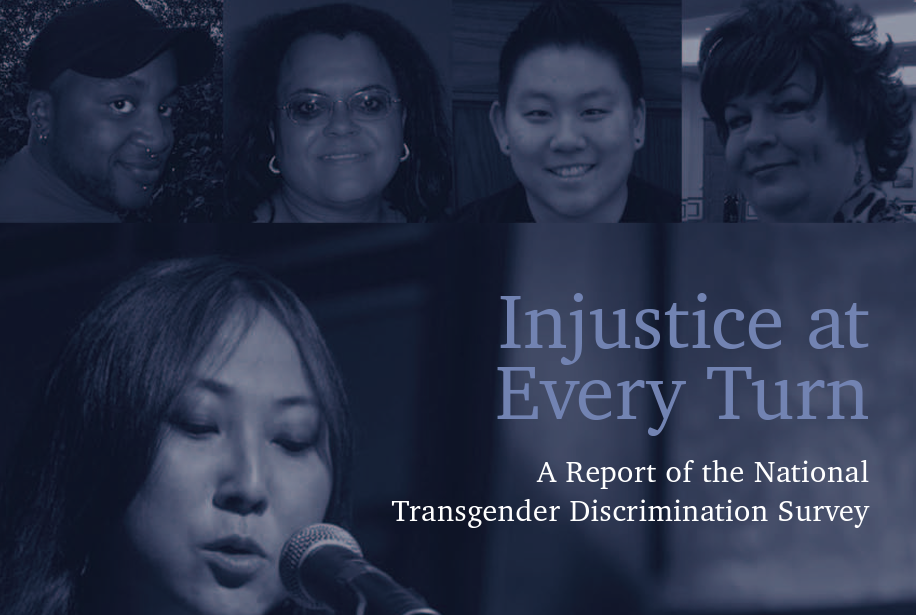
Transgender and gender non-conforming people face rampant discrimination in every area of life: education, employment, family life, public accommodations, housing, health, police and jails, and ID documents. This data is so shocking that it will change the way you think about transgender people and it should change the way you advocate. The National Transgender Discrimination Survey was conducted by the National Gay and Lesbian Task Force and the National Center for Transgender Equality.
